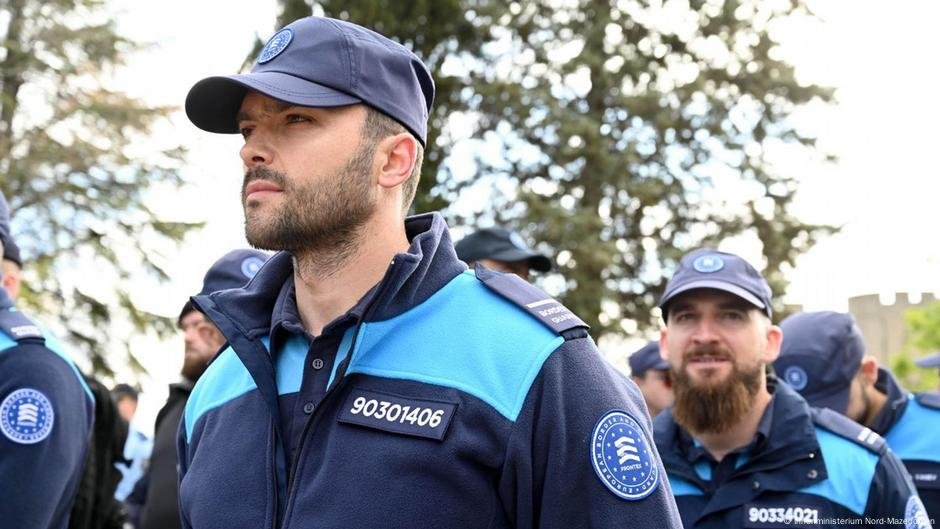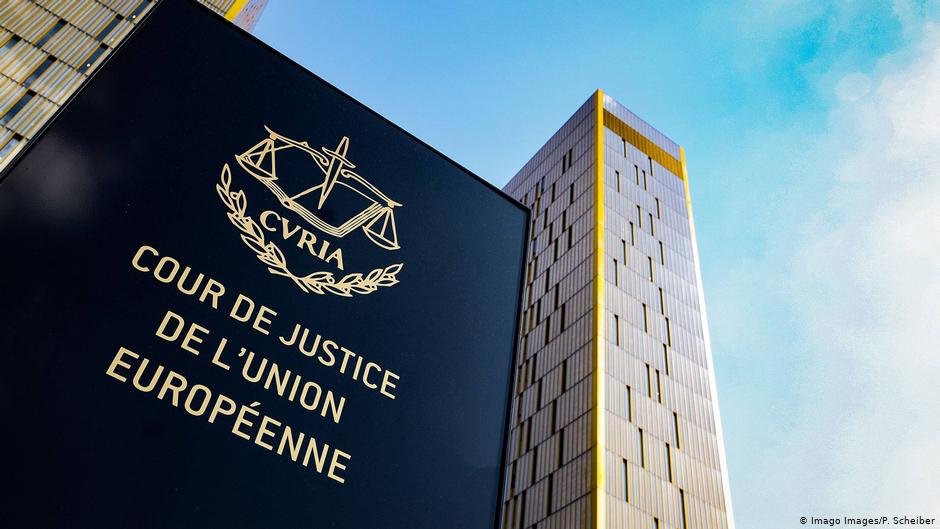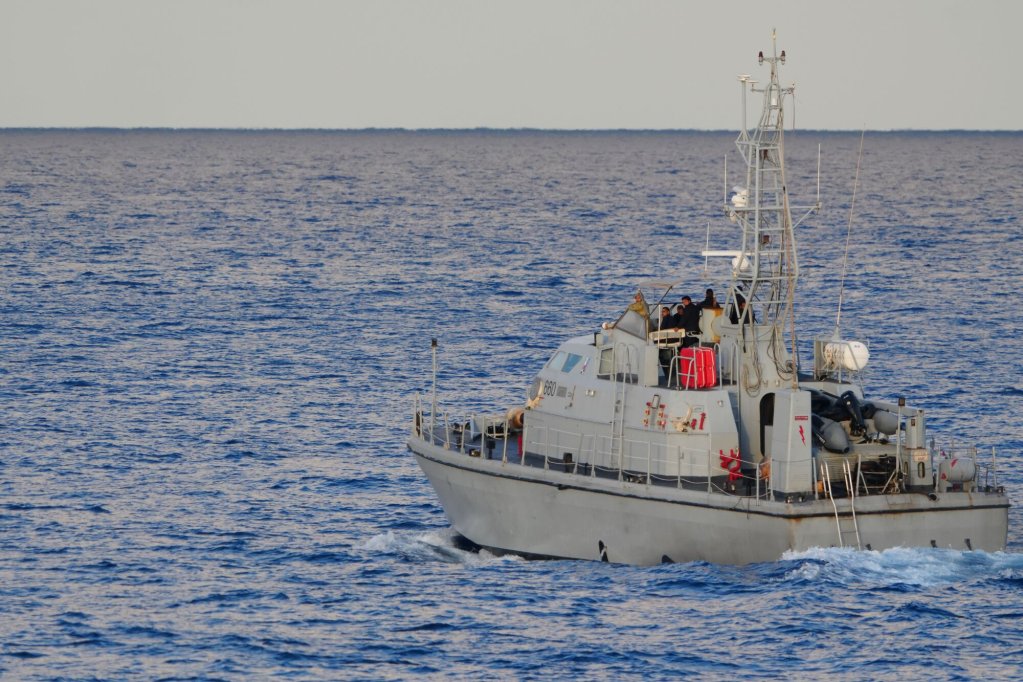Frontex faces mounting evidence of human rights violations in the Aegean and Central Mediterranean. Human rights groups claim that despite this, court rulings have shielded the agency from accountability and restricted justice for victims.
Frontex, the European Union’s border and coast guard agency, is facing mounting evidence of complicity in human rights violations, particularly in the Aegean Sea and the Central Mediterranean.
In March 2022, the European Anti-Fraud Office (OLAF) released a report detailing Frontex’s involvement in illegal pushbacks of asylum seekers in the Aegean since 2020. The report accused the agency of financing vessels used in these operations, diverting surveillance aircraft to avoid witnessing violations, and failing to report abuses due to fear of retaliation. Frontex also allegedly collaborated with Greek authorities to obstruct scrutiny, violating its legal obligation to suspend operations in cases of human rights abuses.

The consequences have been deadly. A year after OLAF’s findings, Frontex’s Fundamental Rights Officer (FRO) reported that at least four people had drowned during collective expulsions in the Aegean. In June 2023, over 600 asylum seekers died in a single pushback attempt. Yet the agency dismissed these concerns, with its executive director commending Greek authorities for "doing their utmost to save lives."
Read AlsoFrontex report into Greek shipwreck suggests more deaths could have been prevented
Legal challenges and impunity
Legal efforts to hold Frontex accountable have encountered significant obstacles. According to Iftach Cohen, legal officer at front-Lex (a group of lawyers challenging European migration policies in the courts), only five cases against the agency have been brought before the Court of Justice of the European Union (CJEU) since its establishment in 2004, all of which were dismissed.

Cohen explains that applicants have pursued all available avenues under EU law to hold Frontex to account. These include filing a "failure to act" claim when an institution neglects its responsibilities, pursuing an "annulment" to challenge the legality of specific decisions, and requesting "damages" as compensation for harm resulting from unlawful actions.
Read AlsoTop EU court makes it easier to deport refugees to other EU states
The issue of 'certainty'
Migrants trying to sue Frontex have faced extremely high barriers and been subject to a requirement to prove certainty few can meet.
An asylum seeker referred to as S.T. whose case against Frontex reached the CJEU was told that he could only succeed if he could prove with certainty that he would be pushed back [forced back over the border in violation of international law, Editor's note] again the next time he attempted to cross the Aegean.
David Yambio, founder of Refugees in Libya, said people trying to sue Frontex over pushbacks faced a "catch-22" situation. "Their cases are only admitted when they cannot present one – when the prejudice to their situation becomes "certain", and they are already being subjected to a pushback at sea. Needless to say, in such cases asylum seekers are unable to contact a lawyer or file legal action to assert their right to protection from refoulement [forcible return of an asylum seeker to a country where they are likely to face persecution, Editor's note]," Yambio told InfoMigrants.
Cohen noted that it is not EU law that sets such a high threshold but "the judges' ... own restrictive interpretation."
In January 2024, a Sudanese asylum seeker identified as F.M. filed a case against Frontex after expressing fear of being intercepted during an imminent sea crossing. Despite presenting extensive evidence from the UN and human rights organizations, F.M.’s case risks dismissal under the same restrictive standards that hampered previous legal actions.
Under the Court’s current standards, F.M. would only gain access to the court if the threat to his life became "certain" – for instance, if he filed a case while being handed over by Frontex to Libyan militias. "This is an impossible requirement," said Yambio.
Read AlsoEuropean Court of Justice rules systematic pushbacks are illegal
Ongoing violations in Libya
Frontex’s activities in the Central Mediterranean have drawn significant criticism, particularly for its coordination with the Libyan Coast Guard. Since 2020, Frontex has helped intercept over 2,200 boats carrying migrants, resulting in the forced return of the passengers to Libya, where they face documented human rights violations including torture, enslavement, and sexual violence.

Compounding these concerns, the EU has been funding and training North African security forces to prevent migrants from reaching Europe. However, this strategy has led to severe human suffering. A recent joint investigation revealed the systematic arrest, abduction, and abandonment of migrants by these forces, often in remote areas without protection.
In response to rising immigration and claims of Russia orchestrating migrant flows, the EU plans to further strengthen Frontex by tripling its personnel and enhancing its surveillance capabilities, such as drones. While the EU argues that these measures will improve border security, activists fear that such actions could facilitate pushbacks into authoritarian regimes like Libya. Critics warn that Frontex's growing focus on surveillance over rescue operations in the Mediterranean may exacerbate the dangers migrants face, urging the EU to balance border control with a stronger commitment to human rights.
Read AlsoRights groups criticize EU plans to strengthen Frontex
Calls for accountability
The barriers to justice for victims of Frontex’s operations have raised serious concerns about the EU’s commitment to the rule of law and what critics say is a culture of impunity and lack of oversight in relation to the border agency. Along with the ongoing legal battles against Frontex, rights groups continue to call for the urgent need for reform. Advocates emphasize that access to justice is a cornerstone of the EU’s legal framework and that no agency, including Frontex, should be above scrutiny.
The EUObserver reported that Frontex has described front-LEX's complaint as a distraction.
"I am deeply troubled by the actions of activists who, having failed in a number of cases against Frontex, now risk people’s lives with another frivolous complaint," said Chris Borowski, the agency's spokesperson, in an email.
However, as new cases against Frontex emerge, the courts are facing mounting pressure to review the substance of the claims. F.M.'s case is still to be heard, and it remains to be seen if there will be a change in approach by the courts or Frontex itself.
Read AlsoGreece plays 'a crucial role' in Europe's asylum reform success: German minister
